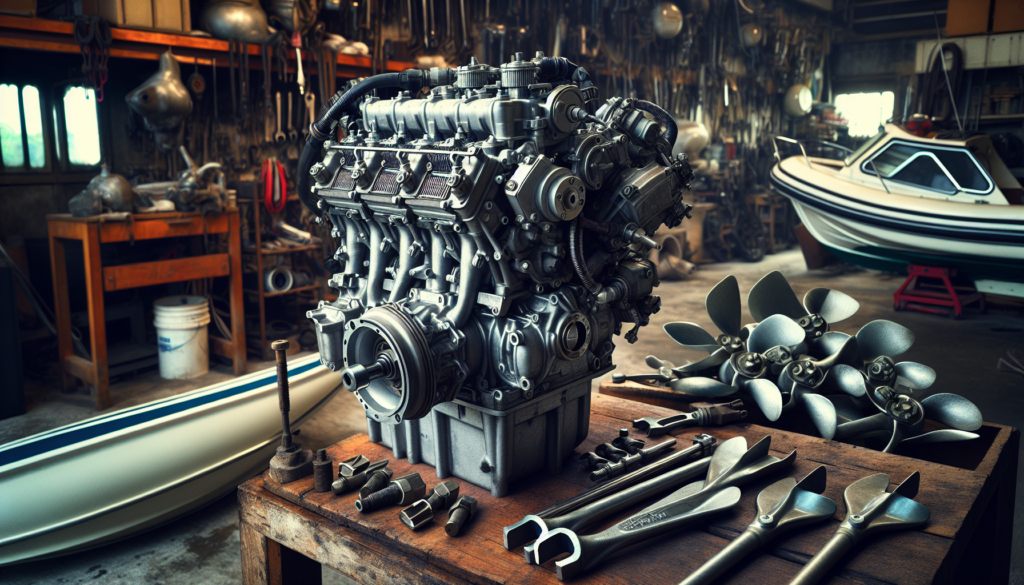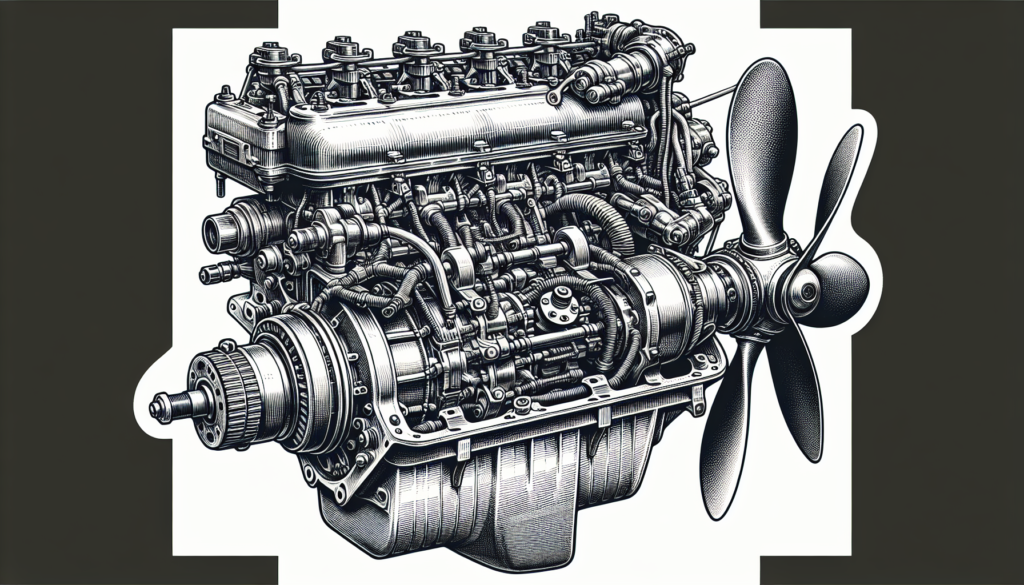Are you thinking about buying a used boat engine? This comprehensive buyer’s guide is designed specifically for you! It will arm you with the critical knowledge and insights needed to make an informed purchase. From understanding different engine types to recognizing potential pitfalls, this guide walks you through each step of the buying process. So set your nerves aside, equip yourself with this buffer of information and sail smoothly into the realm of boat engine purchases!

Understanding Your Needs
Before you commit to buying a used boat engine, you want to understand your needs and what you expect from the aforementioned engine. This helps in narrowing down your options, leading you to the most suitable choice.
Identifying Your Boating Lifestyle
Every boater is unique, owning a different set of habits, preferences, and styles of use. Are you an occasional weekend boater or do you prefer longer, more frequent voyages? Your common boating destinations likewise affect your boat engine choice. For example, if you mostly navigate calm lakes, you need a different engine from someone who largely sails through the open ocean.
Understanding the Different Types of Boat Engines
boat engines come in different types. Each design performs differently and serves various purposes. To make the right decision, take your time and familiarize yourself with the options. Broadly, options include inboard engines, outboard engines, sterndrive engines, and jet engines – each of which we will discuss further in the next section.
Determining the Necessary Horsepower
The right horsepower for your boat engine largely depends on how you intend to use your boat. For instance, a boat typically used for fishing in a calm lake does not necessarily require a high-horsepower engine. Conversely, a boat regularly used for watersports or cruising at high speeds certainly does.
Types of Boat Engines
To make an informed decision when buying a used boat engine, you need to know about the different types of boat engines.
Inboard Engines
Inboard engines are often found on larger boats. They are mounted inside the boat’s hull and offer a lower center of gravity, which enhances stability. Inboard engines are quiet, efficient, and have a longer life expectancy, but they can be more complicated to maintain.
Outboard Engines
Outboard engines are the most common type found on smaller boats. They are mounted on the stern and can be tilted up to avoid damage when in shallow waters. They are lightweight, easy to service, and generally less expensive than inboard engines.
Sterndrive Engines
Sterndrive engines, or inboard/outboard engines, offer a mix of the characteristics of both inboard and outboard engines. They are mounted inside the boat but have a drive unit located outside the hull, making them versatile.
Jet Engines
Jet engines are less common, but they are a great option if you need speed. They intake water through the bottom of the boat and then force it out at high speed from the stern. These engines offer extreme maneuverability but can be less fuel-efficient.
Factors to Consider When Buying a Used Boat Engine
Understanding the crucial factors when buying a used boat engine will ensure you get a reliable engine that offers good value for the money.
Age of the Engine
The age of a boat engine is crucial and directly impacts its lifespan and performance. Older engines may not perform as efficiently as newer ones and may require frequent repairs.
Brand Reliability
Reputation matters when it comes to boat engines. Some brands are known for their longevity, performance, and low maintenance costs, while others may not have such a stellar reputation.
Engine Hours
Engine hours give you insight into the amount of usage the engine has undergone. Engines with high hours may have more wear and tear and could need more maintenance.
Maintenance History
Always ask for the engine’s maintenance history. Regular, documented maintenance is usually a good sign. It indicates that the previous owner took good care of the engine. If the maintenance log is incomplete or non-existent, it could be a red flag.

How to Inspect a Used Boat Engine
Inspecting a used boat engine can save you from future troubles. Here’s how to do it.
Visual Inspection
Start with a visual inspection. Check the exterior for signs of damage, corrosion, or leaks.
Running Inspection
A running inspection lets you observe the engine in action. Listen for unusual noises or vibrations and see if it starts easily.
Compression Test
A compression test measures the engine’s power output. If the compression is low, it may indicate problems with the internal components of the engine.
Oil Analysis
An oil analysis can reveal metallic debris, coolant leaks, or other problems that can degrade an engine’s performance.
Negotiating the Price of a Used Boat Engine
Negotiating can help you land a better deal. Here’s how.
Understanding Market Values
Understand the market values of the used boat engines similar to the one you are about to buy. This will give you a baseline to start negotiating from.
Identifying Negotiating Points
From your inspection, identify any potential issues or needed repairs. You could use these as bargaining chips in your negotiation.
Making a Fair Offer
After understanding the market value, and identifying any potential issues, make a fair offer.
Handling Paperwork and Documentation
The right documentation is crucial when buying a used boat engine.
Required Documents for Transfer
Ensure you have the necessary documents for the transfer of ownership. This could include a bill of sale, title, and registration.
Confirming Legal Ownership
Confirm that the seller is the legal owner of the engine. Ask for proof of ownership if necessary.
Record Keeping of Maintenance and Repairs
Keep all records of any maintenance and repairs performed on the engine for future reference.
Costs and Extras to Consider
Besides the upfront cost, consider the following:
Fuel Efficiency
A more fuel-efficient engine can save you money in the long run.
Costs of Future Repairs
Some used engines may need more maintenance and repairs than others, adding to the overall cost.
Extra Parts or Accessories Included
Find out if the purchase includes any extra parts or accessories. This could influence the final price and value of the purchase.
Consideration of Repowered Engines
Repowered engines can be a tempting proposition, but they also require careful evaluation.
Determining Real Value of Repowered Engines
A repowered engine can offer new engine reliability, but make sure you’re not overpaying for it.
Risks and Benefits of Repowered Engines
While you stand to benefit from a repowered engine, also consider potential risks such as improper installation or poor quality of the new engine.
Importance of Conducting a Sea Trial
A sea trial is crucial in evaluating the real-world performance of the boat engine.
How to Conduct a Sea Trial
During a sea trial, operate the boat at various speeds and make a variety of maneuvers to fully test the engine.
What to Observe During a Sea Trial
Pay attention to the engine’s response, vibrations, noise, and overall operation during the trial.
Closing the Deal
The final steps to acquiring a used boat engine involve closing the purchase, arranging transport, and planning for ongoing maintenance.
Finalizing the Sale
Once you’re satisfied with the engine, finalize the sale according to the agreed-upon terms.
Transporting Your New Used Engine
Plan for suitable transportation methods to get your engine to its new home safely.
Ensuring Proper Engine Installation
Ensure that your new engine is properly installed by a professional and tested to confirm it’s functioning correctly.
Planning for Routine Maintenance
Even after a successful purchase, remember to plot out the necessary routine maintenance for keeping your engine in good condition.
And with that, you’ve successfully navigated the process of buying a used boat engine. Remember, an informed buyer gets the best deals, so conduct thorough research, ask questions, and inspect carefully. Happy boating!

